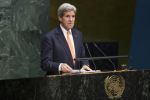Myanmar Companies Need to Catch Up With Evolving Disclosure Requirements

The 2016 report shows that that the top companies which performed best in 2015 continued to be the most transparent in 2016.
All of them have increased the amount of information that they make available to the public. The most transparent large Myanmar company was First Myanmar Investment (FMI) (not assessed in 2015 and this year scored separately to SPA) followed in second place by Serge Pun Associates (1st in 2015), with Max Myanmar (2nd in 2015) coming in third place. Amongst the leading companies, new areas of disclosure were publication of financial data, grievance mechanisms, and environmental and social impact assessments.
However, 34 of the 100 companies surveyed still had no website, and 45 of the 100 companies either did not have fully functioning websites or published little to no data relating to corporate governance.
Vicky Bowman, Director of the Myanmar Centre for Responsible Business reported
“I would like to congratulate Serge Pun’s FMI and SPA for once again heading up the table. The competition at the top end remains intense and most of the best-performing companies on transparency took further steps to disclose information this year.”
On the lack of improvement at the bottom of the table Vicky Bowman notes
“However it is still disappointing that some major players in the Myanmar economy do not appear to show any interest in disclosure, even though it is increasingly becoming a Myanmar legal requirement, particularly when it comes to environmental impact assessments. Furthermore, he draft Companies Act which will apply to all companies in the survey requires a Director’s Report which should include reporting of risks and uncertainties.”
This year’s report also includes companies which have listed or plan to list in the Yangon Stock Exchange, analyses the current YSX disclosure requirements and make recommendations.
Background
-
Pwint Thit Sa /Transparency in Myanmar Enterprise(TiME) compares the websites of 100 of the largest Myanmar companies and scores them on what they say on their corporate governance and business practices, particularly concerning anti-corruption, organizational transparency, and human rights, health, safety and the environment (HSE). However, it only scores what information companies publish, and is not an assessment of their actual performance. The aim of the report is to encourage increased transparency by Myanmar businesses.
-
The companies for the research were drawn from the list of the 2014/2015 Fiscal Year Top 1000 commercial tax payers and Top 1000 income tax payers published by the Internal Revenue Department, together with some other prominent companies and sector leaders. The list of these companies is available on MCRB’s website.
-
A list of the 35 questions/issues which have been searched for on company websites is also available in the Annex of the report, together with a selection of recent critical media and CSO coverage of some of the featured companies.
-
The study was inspired by Transparency International’s Transparency in Corporate Reporting study (© Transparency International. All Rights Reserved). This initiative assessed companies’ anti-corruption reporting practices; the way in which they organized company holdings such as subsidiaries and joint ventures; and the level of information they report about each country they operate in. The latest TI report was published in November 2014. For further information see www.transparency.org.
-
Companies were informed of the study in March and sent draft findings of research on their websites in May. They were invited to comment or add further information to their websites. Information published on websites up until 31 July 2016 was taken into account.
-
Myanmar Centre for Responsible Business (MCRB) is a Yangon-based initiative funded by the UK, Denmark, Norway, Switzerland, the Netherlands and Ireland, based on a collaboration between the UK-based Institute for Human Rights and Business, and the Danish Institute for Human Rights. The Centre was established in 2013 to provide an effective and legitimate platform for the creation of knowledge, capacity and dialogue concerning responsible business in Myanmar, based on local needs and international standards, which results in more responsible business practices. It is a neutral platform working with business, civil society and government. (www.mcrb.org.mm)
Read also
- 2022 Pwint Thit Sa / Transparency in Myanmar Enterprises
- uab Tops the 2020 Pwint Thit Sa / Transparency In Myanmar Enterprises Ranking
- 2020 Pwint Thit Sa / Transparency in Myanmar Enterprises
- Corporate Disclosure in Myanmar – Regulatory Requirements and Sustainability Leadership
- Disclosure of Company Information Leads to Better Business Reporting and a Better Investment Climate
 English
English မြန်မာ
မြန်မာ မြန်မာ (unicode)
မြန်မာ (unicode)








